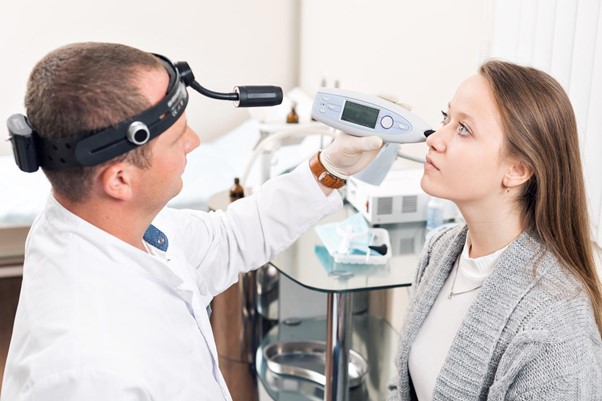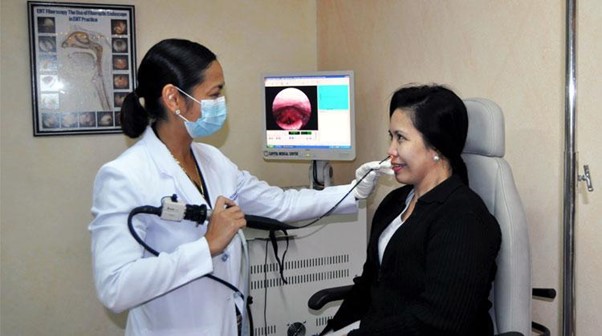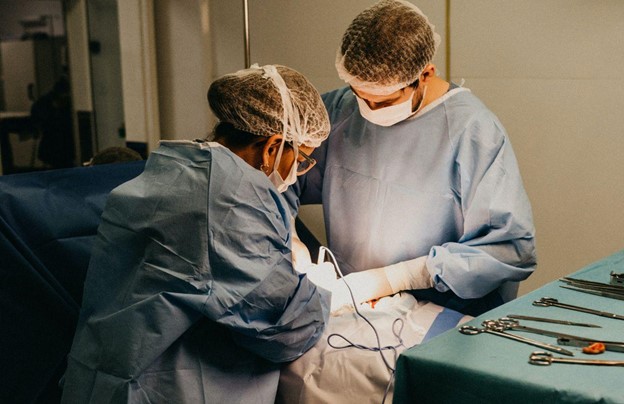The Role of an ENT Specialist in Singapore

ENT specialists, or otolaryngologists, are medical professionals who specialize in the diagnosis and treatment of diseases related to the ear, nose, and throat (ENT) region.
They diagnose and treat conditions affecting hearing, balance, and smell; voice-related disorders such as vocal cord polyps; sinus issues; and head and neck cancers.
ENT specialists are trained in both medical and surgical treatments for these conditions, ranging from drug therapy to minimally invasive surgery.
When to See an ENT Specialist
If you suffer from chronic ear infections, sinusitis, hearing loss, or other problems related to the ear, nose, or throat region, it is recommended that you see an ENT specialist.
An ENT is also the best physician to consult regarding persistent snoring or sleep apnea, as well as head and neck cancers or tumors.
If you have a genetic condition such as cleft lip or palate, an ENT can provide treatment options for these conditions as well. Other reasons include:
Hearing problems
If you experience difficulty hearing, it’s time to see an ENT specialist. They can diagnose and provide treatment for various hearing conditions including hearing loss, tinnitus, and balance disorders.
ENT specialists have the necessary equipment and skills to determine the cause of hearing problems and take the appropriate action.
Chronic sinusitis
If you’ve been suffering from chronic sinusitis, which is a long-term inflammation of the sinuses, it’s important to see an ENT specialist.
They can determine the underlying cause of the infection and provide appropriate treatment. Treatment may involve medication, such as antibiotics or steroids, and in severe cases, surgery may be recommended.
Voice problems
If you’re experiencing changes in your voice, an ENT specialist can help determine the cause.
Voice problems can be caused by many things, including vocal cord nodules, laryngitis, and cancer. Early diagnosis and treatment can prevent complications and ensure the best possible outcome.
Throat problems
If you have a persistent sore throat or difficulty swallowing, it’s important to see an ENT specialist. They can diagnose throat cancer or other issues and provide appropriate treatment.
Quick diagnosis and treatment can prevent complications and increase the chances of a successful outcome.
Dizziness and vertigo
If you’re experiencing dizziness or vertigo, it’s important to see an ENT specialist. They can diagnose the underlying cause, which may be a balance disorder or other issues, and provide appropriate treatment.
Treatment may involve medication, exercises, and/or surgery.

What to Expect at an Appointment with an ENT Specialist
A Thorough Medical History
Expect the ENT specialist to ask you many questions relating to your medical history. They will want to know about past surgeries, childhood illnesses, chronic conditions, allergies, and of course your current symptoms.
The ENT will use all of this information to determine the causes of your symptoms and suggest the most appropriate treatment.
Examination
After gathering medical history, the ENT will conduct a physical exam. This exam will involve looking in your ears, nose, and throat, which may be uncomfortable, but not painful.
If needed, the doctor will also use specialized tools to examine areas in more detail to correctly diagnose the problem.
You may also be asked to undergo allergy testing if the doctor suspects you may be allergic to something.
Diagnosis and Treatment Plan
After gathering medical history, the ENT will conduct a physical exam. This exam will involve looking in your ears, nose, and throat, which may be uncomfortable, but not painful.
If needed, the doctor will also use specialized tools to examine areas in more detail to correctly diagnose the problem.
You may also be asked to undergo allergy testing if the doctor suspects you may be allergic to something.
Follow-up Appointments
The ENT specialist will likely schedule future appointments with you. Follow-up appointments are usually necessary to monitor and manage the effectiveness of the treatments prescribed.

During these appointments, they will review your progress and assess whether adjustments to your treatment plan are necessary.
Collaboration with Primary Care Physician
After your diagnosis and treatment, your ENT specialist will likely work with your primary care physician for integrated care.
They will communicate with your primary care physician about your diagnosis and provide a detailed report of the treatment plan.
Your primary care physician may also help you manage medications and ongoing treatments.
Diagnosis and Treatment Plans for Ear, Nose, and Throat Issues
When a diagnosis has been made, your ENT specialist will discuss treatment options with you. In many cases, medication can be prescribed to treat infections and other conditions.
For more serious issues, such as head and neck cancers, surgery might be necessary to remove tumors or diseased tissue.
Long-term Care Planning with Your ENT Specialist
Schedule regular check-ups
Regular check-ups with your ENT specialist can help identify problems early, and they can help to prevent complications.
According to our ENT Specialist Singapore expert, regular hearing exams can start as early as age 50, while exams focused on nasal and sinus issues will depend on symptoms. They recommend annual or bi-annual check-ups depending on your diagnosis. It is important to follow your doctor’s guidelines to get the most benefit from these check-ups.
Stay up to date on medication
It is vital to understand the medications you are taking to treat your ENT condition.

Your ENT doctor will prescribe the medication that is best suited for your condition, and it is essential to follow their instructions concerning dosage and timing.
Make sure to request documentation to maintain an up-to-date record of your medication history.
Follow a healthy lifestyle
A healthy lifestyle is crucial to managing your ENT condition in the long run.
Proper nutrition, sufficient sleep, regular exercise, and stress management are all essential aspects of overall health.
Consult your ENT specialist who can recommend modifications in your lifestyle to keep you healthy.
Discuss treatment options
Understanding the long-term management of your ENT condition can enable you to choose the best course of action in the event of an acute flare-up.
Discuss the different medical and surgical treatment options with your ENT specialist to help you make informed choices.
Stay informed of insurance coverage
Treatment options are not inexpensive, which is why it is crucial to understand your health insurance coverage concerning your ENT condition.
Your ENT specialist should understand insurance policies and be able to advise you on the best use of insurance benefits for your condition.
Conclusion
An ENT specialist is a medical professional with specialized training in diagnosing and treating conditions affecting the ear, nose, and throat (ENT) region.
If you experience chronic issues with your ears, nose, or throat— such as difficulty hearing, chronic sinus infections, or snoring— you should see an ENT specialist. During the appointment, the doctor will evaluate your condition and discuss treatment options with you.
If long-term care is needed to manage your condition, the ENT can provide a comprehensive plan that includes medication, lifestyle modifications, and follow-up visits.
The Role of an ENT Specialist in Singapore Read More »













